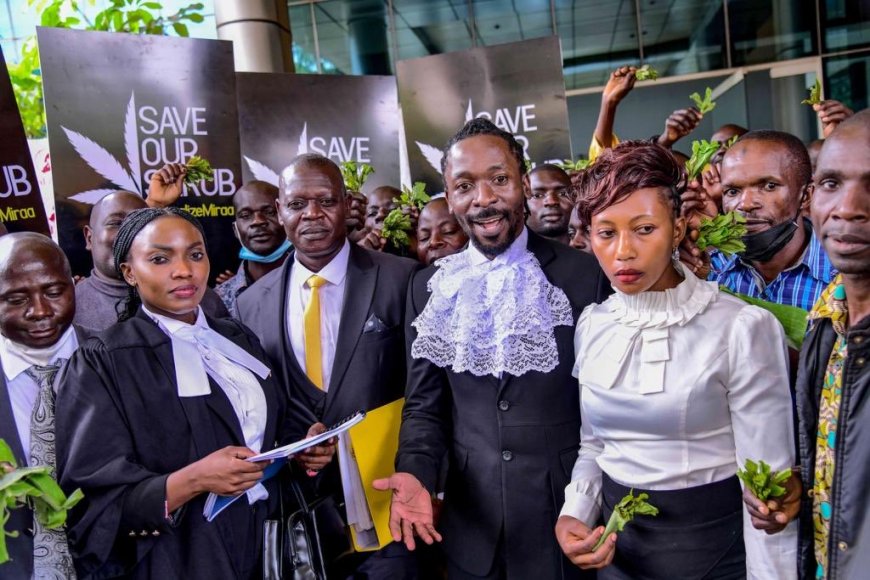From Forbidden to Free: Court Declares Marijuana, Miraa Legal in Uganda
The constitution court which among others prohibited the sale and use of several narcotic drugs in the country has been repealed the Narcotic Drugs and Psychotropic Substances (Control) Act, 2015early this week.

For years, marijuana and miraa substances were deemed illegal, with severe penalties attached to their use, cultivation, or sale.
https://twitter.com/westnile_tv/status/1654551444723310592
However, a recent ruling by the Court has shattered the barriers that once confined them, declaring them completely legal. This momentous decision has not only abolished the restrictive laws of the past but has also paved the way for individuals to freely plant, sell, and enjoy marijuana and miraa without fear of persecution.
The constitution court which among others prohibited the sale and use of several narcotic drugs in the country has been repealed the Narcotic Drugs and Psychotropic Substances (Control) Act, 2015early this week.
The decision followed a petition by farmers of miraa against the law that described the crop as a narcotic drug and consequently banned it in the country.
“In the premises, I would declare the Narcotic Drugs and Psychotropic Substances (Control) Act, 2015 null and void for lack of quorum on the part of parliament contrary to articles 88 and 89 of the Constitution and rule 23 of the Rules of Procedure of the 9th parliament ,2012 made, pursuant to articles 88 and 94 of the Constitution,” Justice Muzamiru Mutangula Kibeedi said in a lead judgement.
In the 2017 petition, the farmers of the crop under their umbrella body, Wakiso Miraa Growers and Dealers Association Ltd, petitioned the Constitutional Court seeking for overturning of the decision of parliament which they said was inconsistent with principles of legality, equality, rationality and proportionality guaranteed under the constitution since they were never consulted.
The dealers in mairungi also argued that they were aggrieved over the manner in which the law seeks to prohibit the cultivation, possession, consumption, sale, purchase, warehousing, distribution, transportation, exportation, importation and other dealings in the crop arguing that this decision was not backed up by any evidence, scientific or otherwise.
On Friday, the Constitutional Court ruled that the manner in which the entire law was enacted was illegal and the only remedy was repealing it.
According to the panel of five justices including the Deputy Chief Justice, Richard Buteera, Justice Stephen Musota, Justice Muzamiru Mutangula Kibeedi, Justice Irene Mulyagonja and Justice Monica K . Mugyenyi the rules of procedure in parliament require for a quorum before any bill is passed, adding that the rules also provide for what constitutes the quorum and the obligation of the speaker in confirming its existence.
“At the stage of voting, the bill must receive the sufficient number of votes in order for it to be lawfully passed. The sufficient number of votes is prescribed by Article 89(1) of the Constitution. They consist majority of the quorum.”
The justices of the Constitutional Court therefore rule that any bill passed without the above procedure being followed is null and void.
What's Your Reaction?

















































































